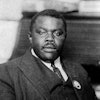The College of Charleston will soon become the 11th college in South Carolina to embark on a program that for seven years has been increasing the horrid numbers of Black male elementary teachers in the South Carolina state system.
The “Call Me MISTER” program, which will be instituted at the College of Charleston in the fall, intends to address the grave shortage of Black males who represent less than one percent of the elementary school teachers in South Carolina.
“The primary design is to recruit, retain, develop and place African American men into teaching positions primarily at the elementary and middle school levels in South Carolina public schools,” said Dr. Roy Jones, a lecturer at Clemson University and director of the statewide Call Me MISTER program.
The program, officially founded in the fall of 2000 with its first class of misters, began as a collaboration between Clemson University and three private HBCUs — Benedict College, Claflin University and Morris College. Since then, it has grown with the addition of South Carolina State University, five two-year colleges—Greenville Technical College, Midlands Technical College, Orangeburg-Calhoun Technical College, Tri-County Technical College and Trident Technical College—and most recently the College of Charleston.
Program officials say they strategically sought out the College of Charleston to join the network.
“What became clear is that we needed another four-year college in Charleston to help develop the cluster in the Charleston area,” says Jones. “We didn’t have a four-year college at all down in the low country of South Carolina.
The line “Call Me MISTER” was made famous by Sidney Poitier in the movie In the Heat of the Night. MISTER is an acronym that stands for “Men Instructing Student Toward Effective Role Modeling.” All current and incoming fall 2007 misters will qualify for the recently developed Loan Forgiveness program administered by the South Carolina Student Loan Corporation. They also receive a combination of existing state-appropriated funding administered by Clemson and state and federal loans ranging between $5,000 and $7,500 annually. All misters in the South Carolina Student Loan Program are required to teach in a South Carolina public school in exchange for every year of financial support they received.
The program also provides its participants with academic, social and cultural support.
The College of Charleston is seeking to bring in an initial cohort of five misters in the fall, says Dr. Steven L. Thomas, program manager for the Call Me MISTER program at the college. Recruiting efforts have focused on all of the Black men who have been admitted to the college for the fall, and specifically those who have expressed interest in elementary education. And they are also letting local Trident Technical College students know that the Call Me MISTER program is now at the College of Charleston, Thomas says.
“We are doing everything we can to actually identify the young men who will be in our first cohort of misters,” Thomas says. “We have a list of names and we are going through a process of contacting those individuals to give them more information about the program. And I’m hoping that before the end of the month or maybe in April, we are going to bring them to the campus and interview them and have them meet some faculty, so they could start to establish some professional networks and make connections with the campus community.”
The scarcity of Black men in elementary school classrooms is a problem many states are facing. However, South Carolina is last in the nation in placing males of all racial groups in the classroom, and declining number of Black males in college is making it harder to place Black males in particular in the classroom, Jones says.
In a state more than one-third Black, there are a mere 200 Black male teachers out of more than 20,000 teachers in more than 600 elementary schools in South Carolina, Jones says.
“You only have 200 Black men, so if you do simple math and all of those were at one school there would still be 400 elementary schools in the state of South Carolina without a Black male teacher in it,” he says.
But the numbers are growing because of the Call Me MISTER program. There are 20 former misters currently teaching in the state (10 percent of total), not including those who graduated in January and who intend to graduate this spring. In addition, there are about 150 misters currently in college in the network, who will almost double the number of Black men elementary school teachers in the state when they graduate.
College of Charleston probably won’t be the last to join the network, officials hope.
“We have a strategic plan and a vision to really position every college in the state who wants to participate and has a teacher education program at the elementary and middle school level an opportunity to come in,” Jones says, “to be part of the mister network.”
–Ibram Rogers
© Copyright 2005 by DiverseEducation.com



















